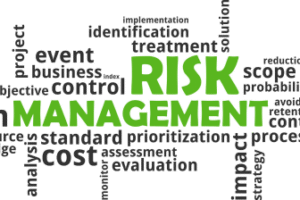
Is a financial risk management course worth it in India?
Is a financial risk management course worth it in India?
Understanding Financial Risk Management in the Current Economic Climate
Financial risk management involves identifying, measuring, and mitigating potential risks associated with organizational finances. Risks may be operational, credit, market-based, or environmental, including ESG-related risks.
Demand for risk managers is rising due to globalization, emerging technologies, and increasing regulatory requirements. Professionals develop both quantitative and qualitative skills to protect organizational finances through a structured learning pathway, such as a reputable financial risk management course in India.
Reasons Behind India’s Growing Need for Financial Risk Managers
India faces increasing uncertainty due to economic growth, shifting tax laws, cyber threats, climate-related disruptions, and volatile commodity prices.
Key drivers of demand include:
- Growth of digital banking, fintech, and financial services
- Stricter regulatory compliance requirements
- Rising cross-border trade and international collaboration
- Growing investor awareness of sustainability and corporate governanc.
A well-structured financial risk management course in India addresses these evolving needs effectively.
Benefits of Financial Risk Management Courses in India
Development of Specialized Skills: Professionals gain expertise in risk modeling, data analysis, and policy creation. These skills are highly sought in banking, consulting, and finance.
- High Career Mobility: Risk management professionals can work across industries including manufacturing, real estate, insurance, banking, and government agencies.
- Job Security: Risk professionals play a crucial role during economic downturns, reducing their likelihood of layoffs
- Attractive Salary: Organizations pay more to employees who safeguard assets and ensure regulatory compliance.
The PGDRM Course: Excellence in Risk Education
The Post Graduate Diploma in Risk Management (PGDRM) is one of the most industry-relevant programs for graduates and working professionals in India.
The course includes:
- Real-world case studies
- Live projects
- Operational, market, and strategic risk frameworks
- ESG risk management
Faculty members possess practical corporate experience and maintain industry connections. The program equips students with analytical and strategic skills for regulatory agencies, consulting firms, and global banks.
The PGDRM is a valuable investment offering long-term career growth for individuals assessing financial risk management courses India.
How Risk Management Training Enhances Employment Opportunities
Completing a recognized financial risk management course opens doors to positions such as:
- Risk Analyst
- Compliance Officer
- Credit Risk Manager
- Operational Risk Specialist
- ESG Risk Consultant
- Treasury Manager
These roles allow professionals to contribute to strategic corporate decisions while earning competitive compensation. Specialists in ESG, cyber, and climate risk are particularly valued as companies adopt integrated risk management strategies.
ESG and Financial Risk Management: Shaping Future Business Strategy
Incorporating ESG risk management is increasingly important. Professionals trained in ESG can influence corporate policy, as investment decisions now consider governance, social responsibility, and climate impact.
A comprehensive financial risk management course includes sustainability practices, environmental compliance, and social impact assessment. Programs like PGDRM prepare students with these future-ready skills.
Key Considerations When Choosing a Course
- Curriculum Relevance: Ensure it covers ESG, cyber threats, and emerging risks
- Faculty Expertise: Prefer professionals with practical experience over purely academic instructors
- Industry Connections: Check for corporate partnerships, projects, or internship opportunities
- Placement Records: Assess alumni employment in reputed organizations
- Flexibility: Consider programs with adaptable schedules or weekend options for working professionals
Return on Investment of Financial Risk Management Education
Specialist courses in financial risk management offer a high ROI. Job advancement and salary growth often justify the expense. Risk managers can progress to leadership roles like Head of Compliance or Chief Risk Officer. These positions allow strategic influence over corporate decisions and improved compensation.
GRMI: Building Future Risk Leaders
The PGDRM course is designed to meet modern and future industry expectations. Students develop leadership and problem-solving skills while gaining thorough knowledge of financial, operational, and ESG risks.
Graduates are prepared to contribute immediately to organizations. The program also provides international exposure, making it an excellent platform for future risk professionals in India.
Conclusion: Is Financial Risk Management Education Worth It?
Financial risk management courses in India are highly valuable when they combine theory with practical experience. Risk professionals are now critical resources for organizations facing uncertainty and ESG-related challenges.
The PGDRM program provides a future-ready pathway for individuals aiming to excel in finance and risk strategy. It ensures professional growth while enabling meaningful contributions to corporate resilience and expansion.
You may also like

Best Short Term Courses in IT for Freshers

What is the Best Course in Risk Management in India?


